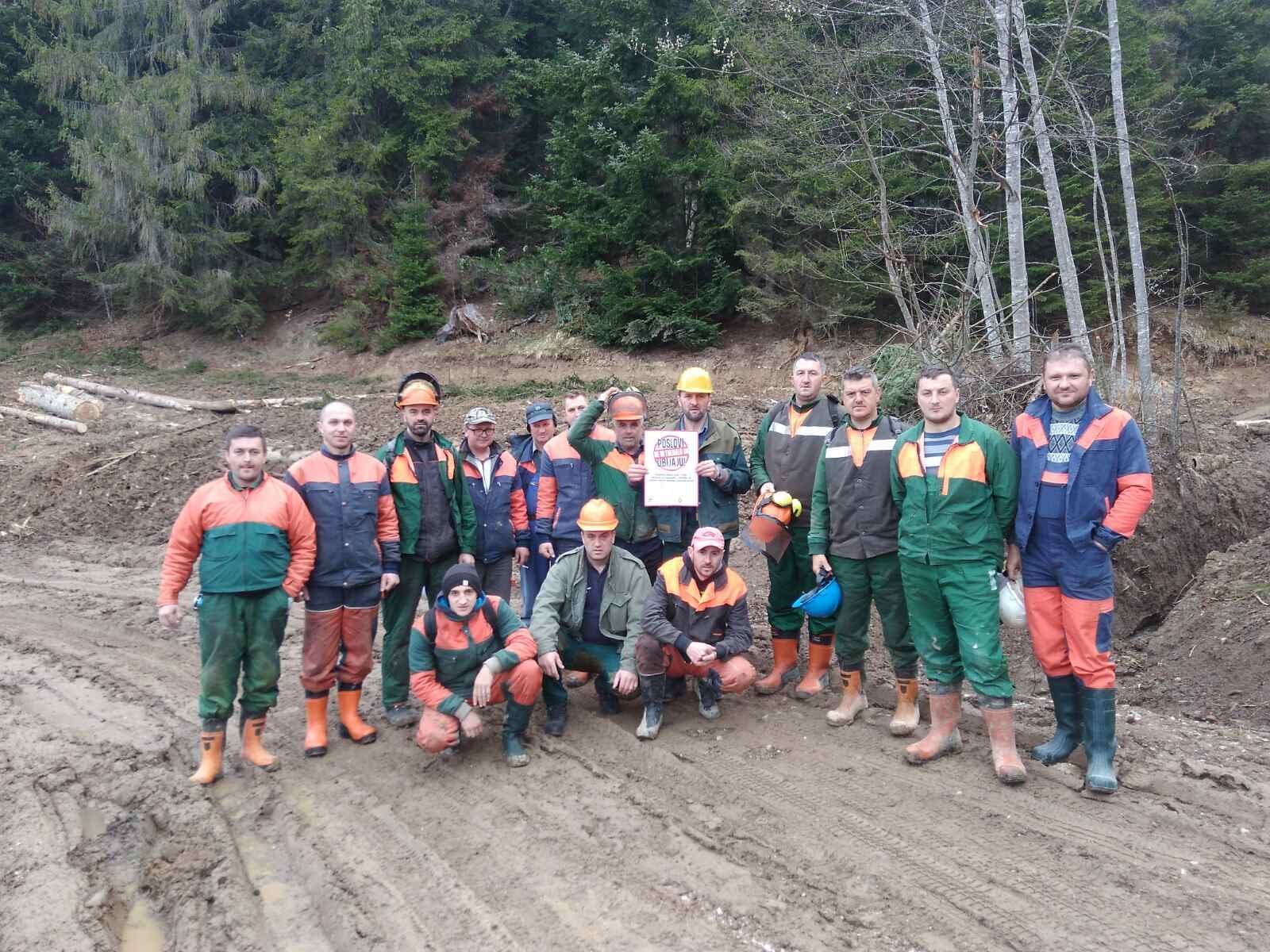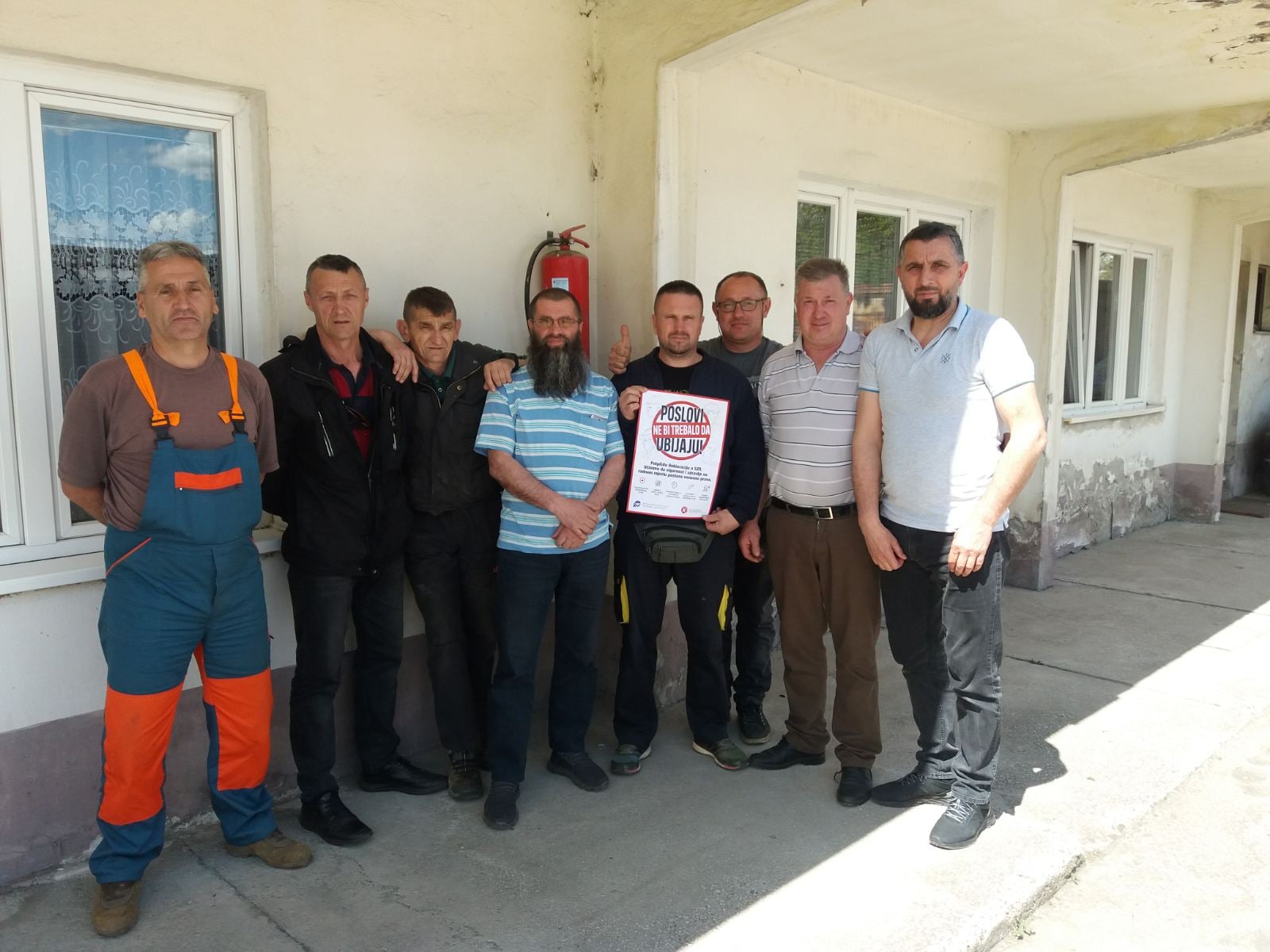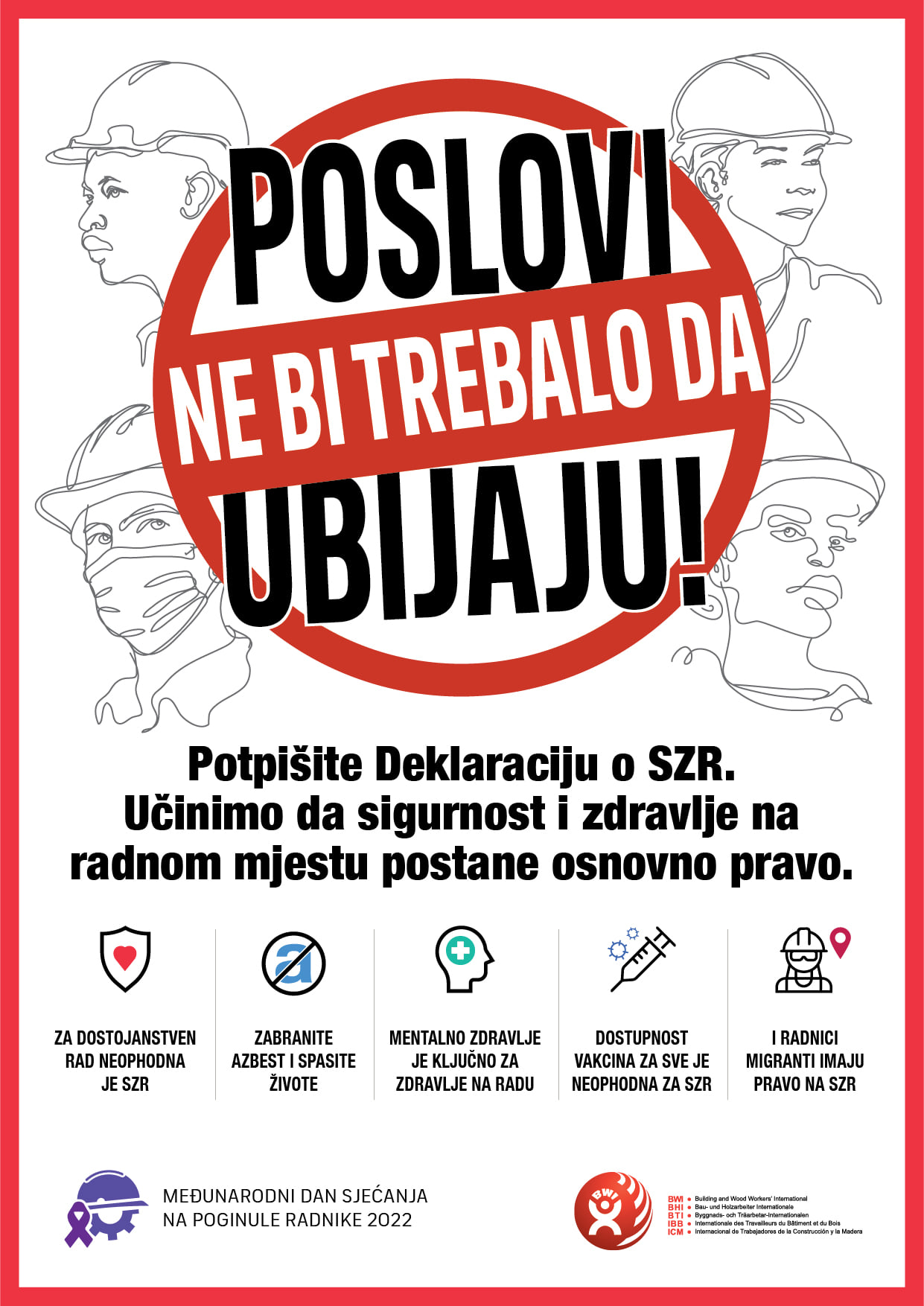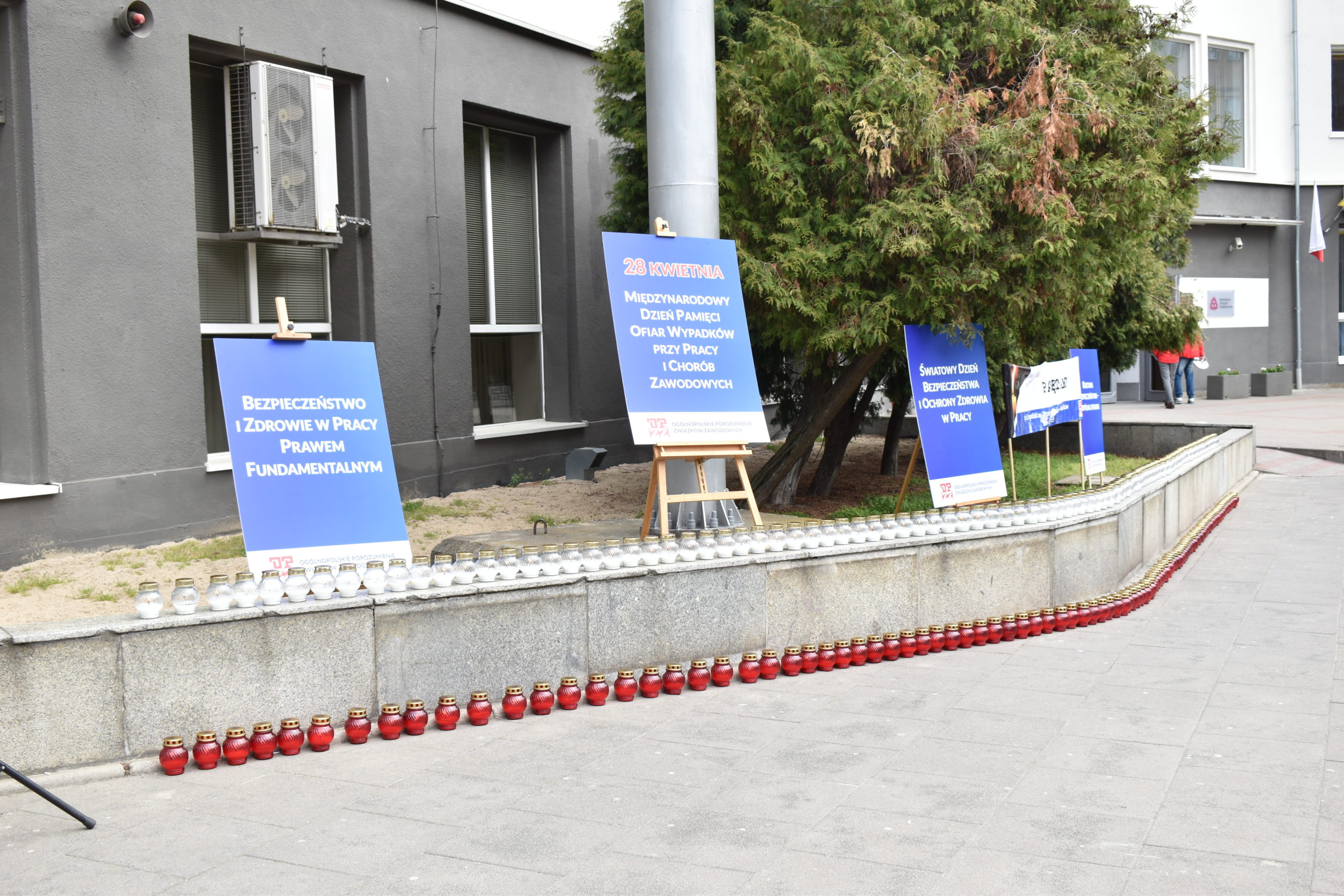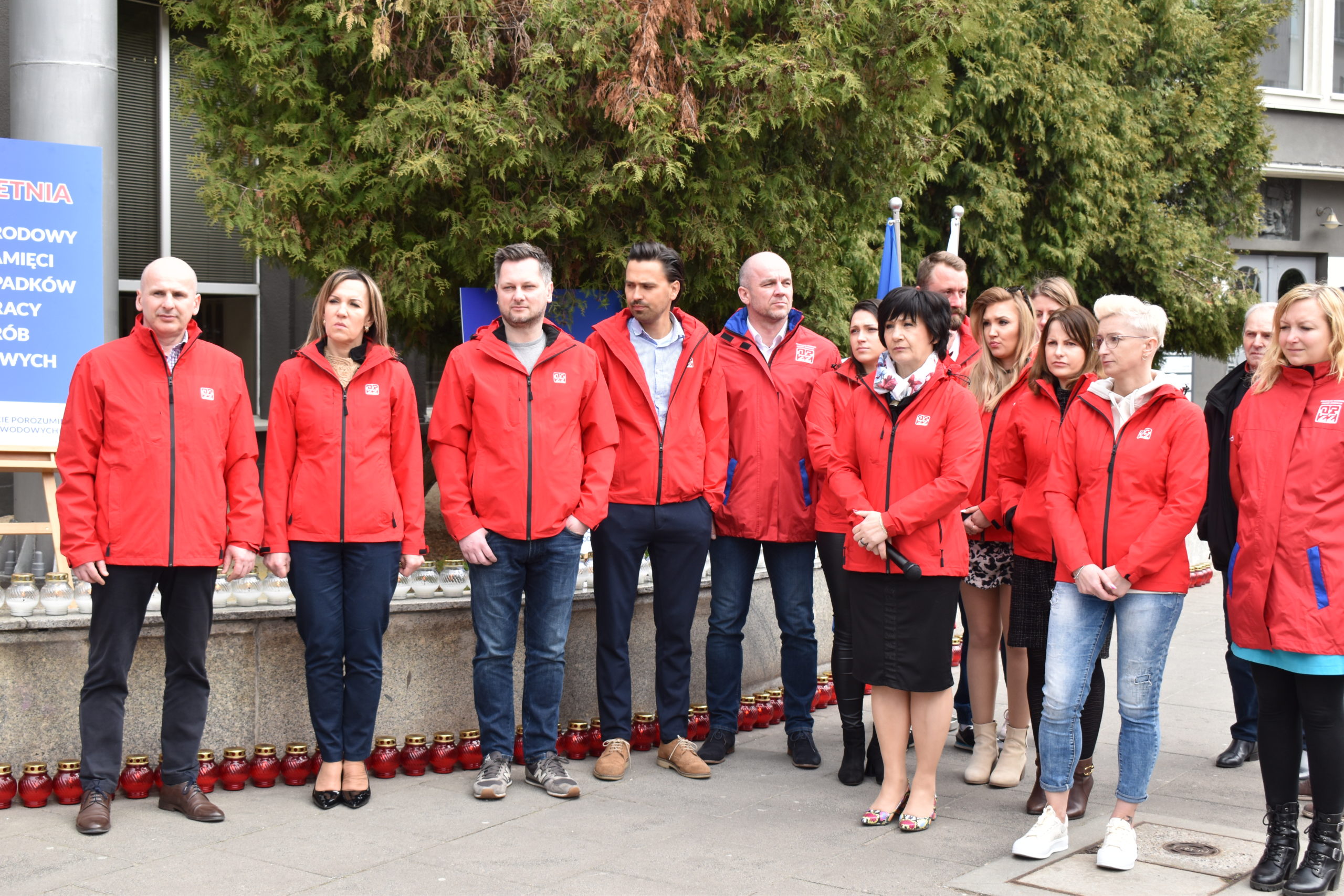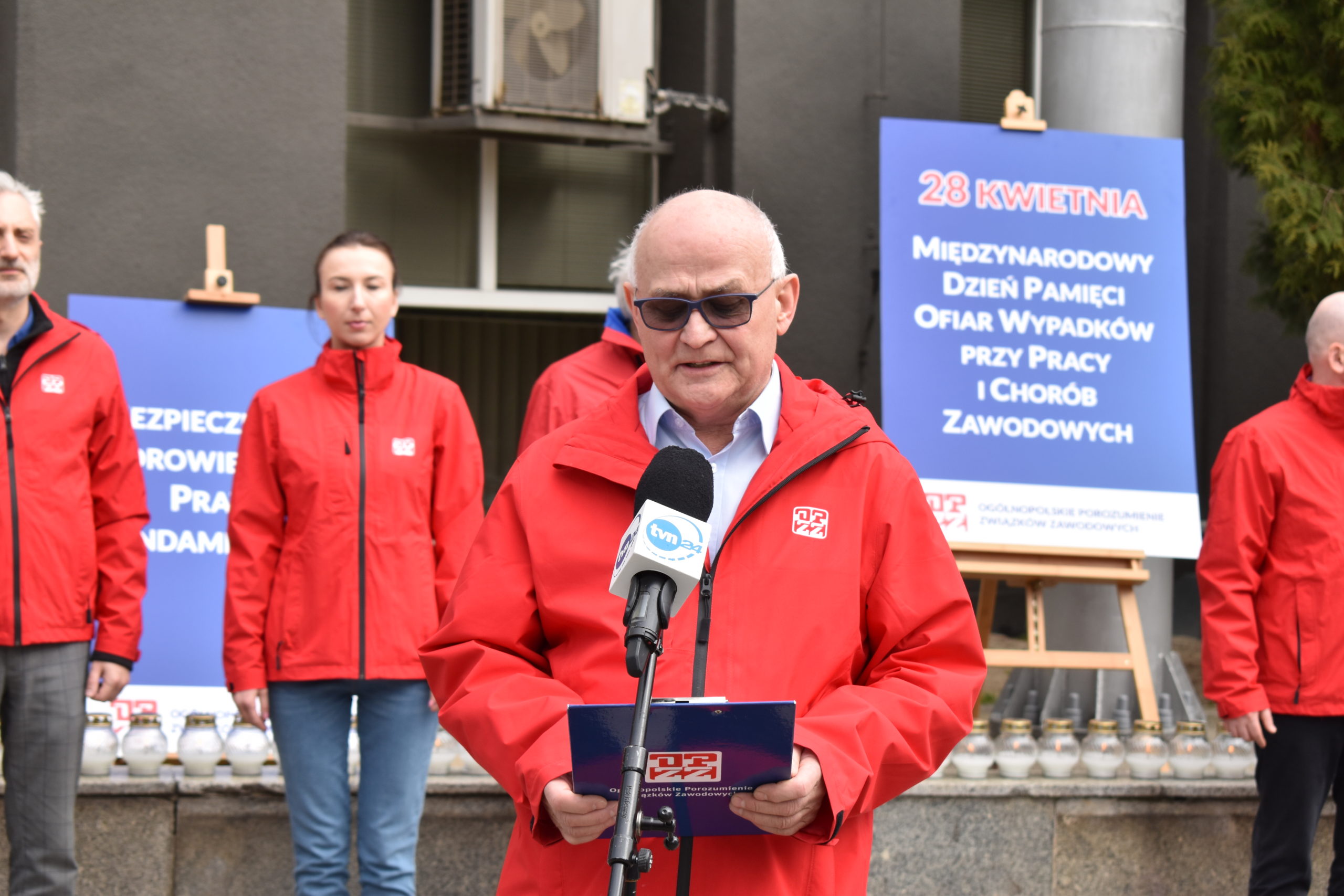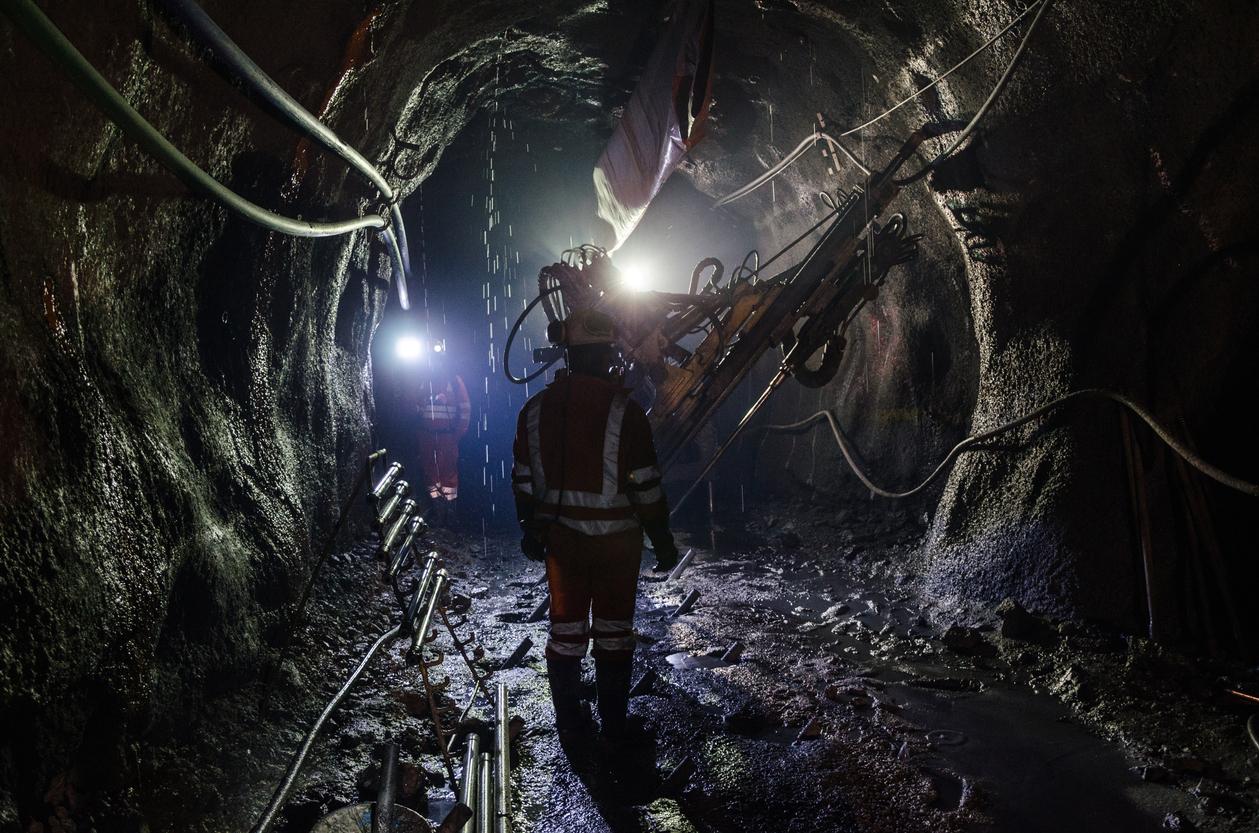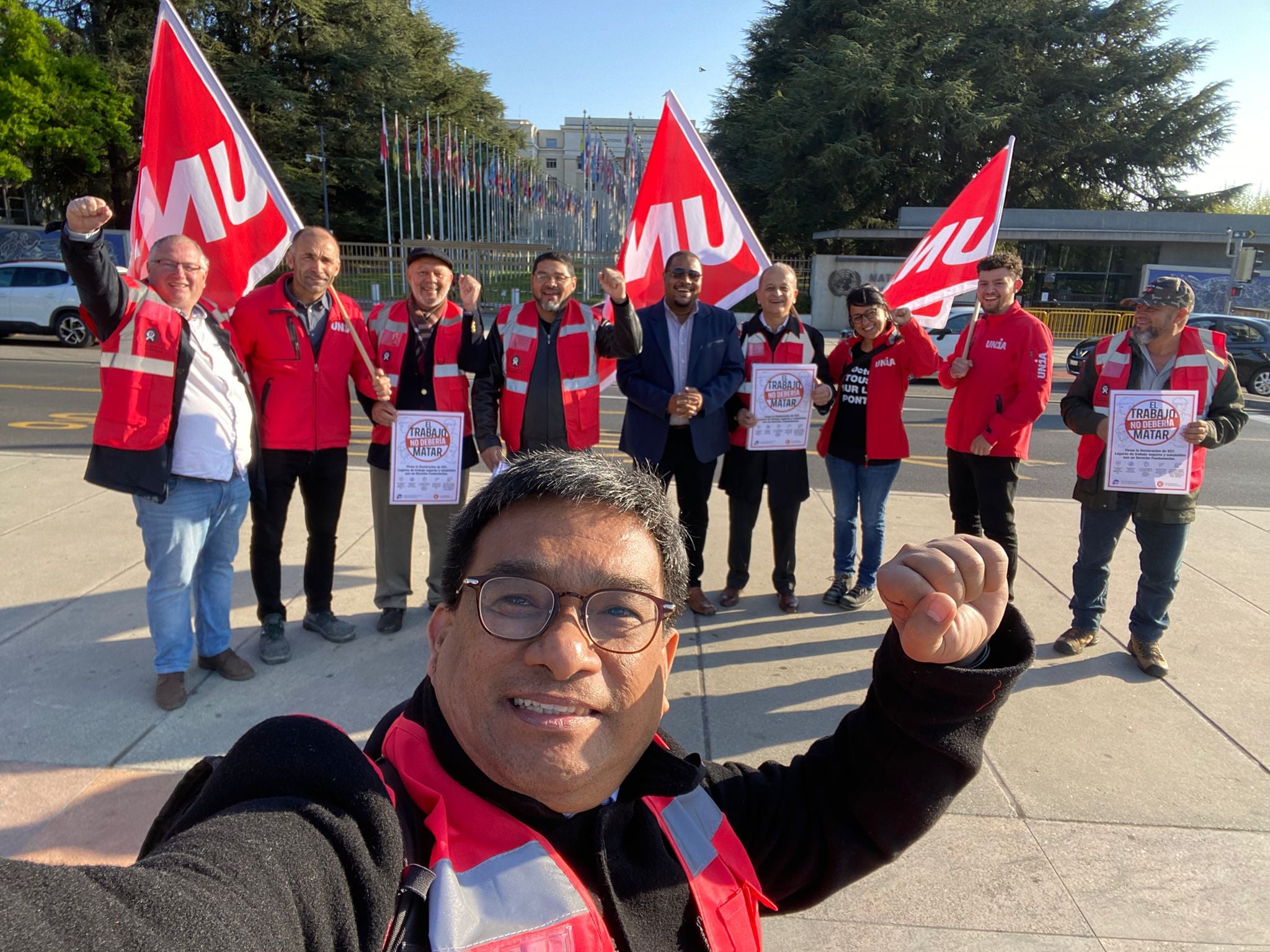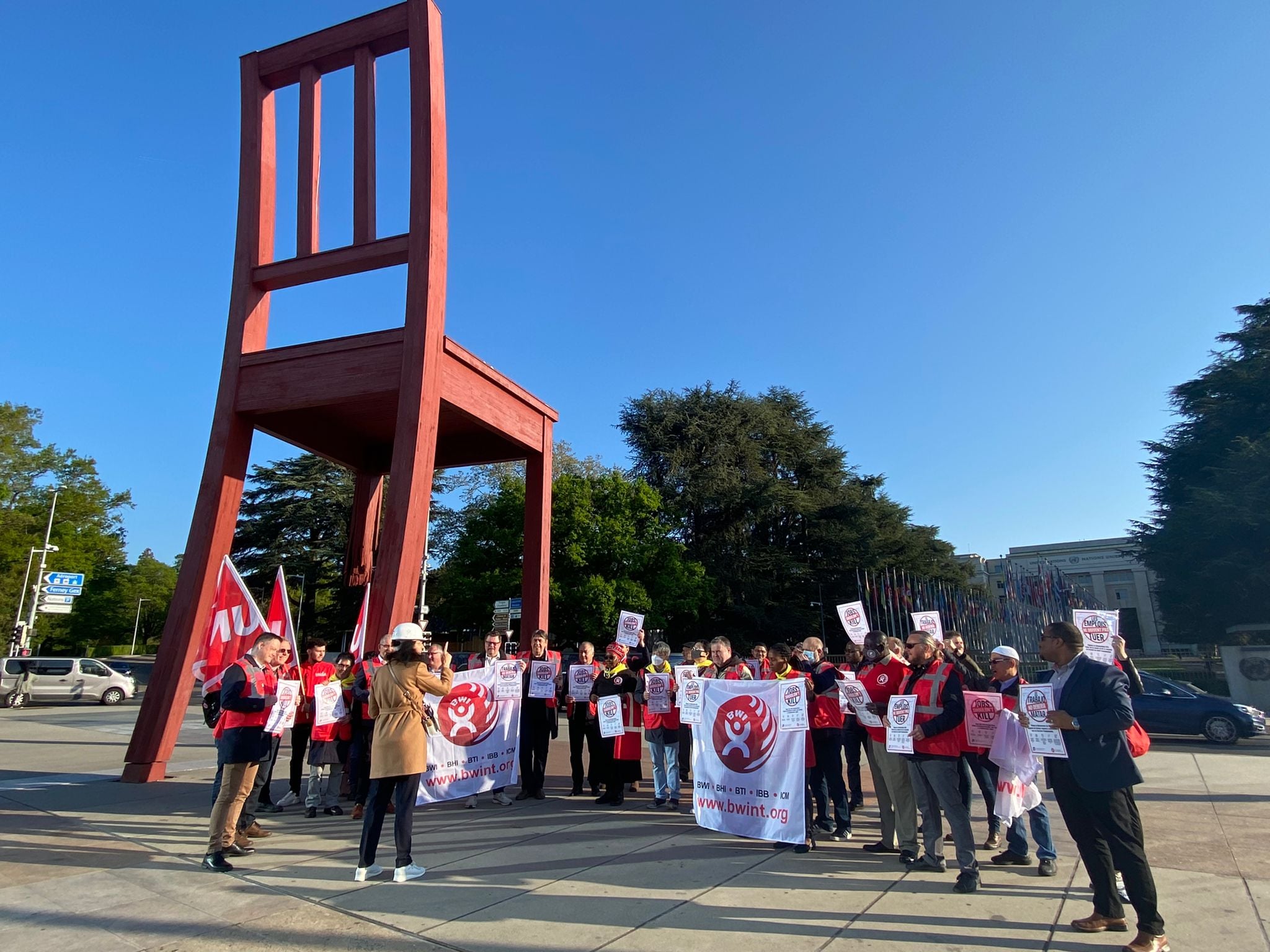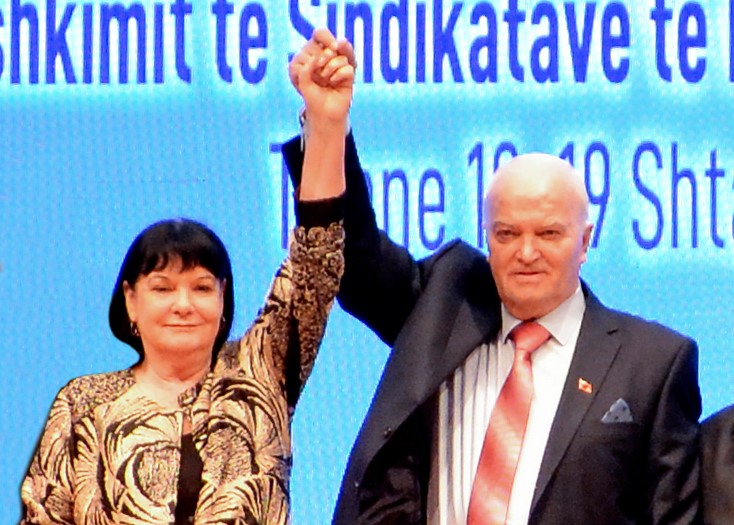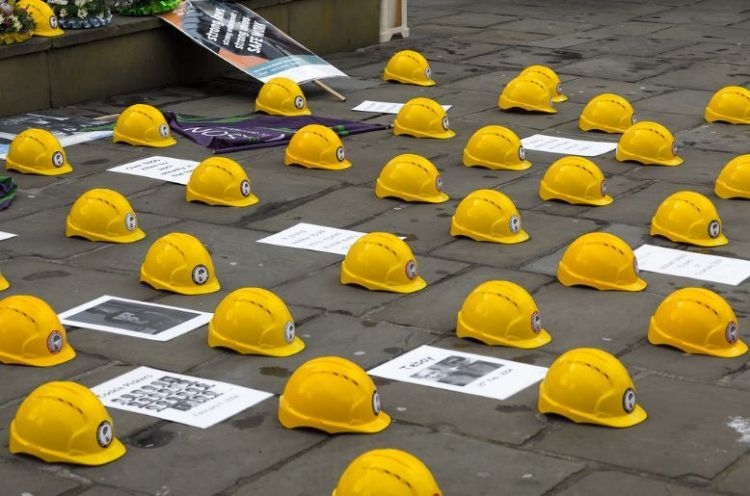
Thursday 28 April 2022
TUC release
On Workers’ Memorial Day, unions and bereaved families demand Covid inquiry seeks the truth about worker deaths
· “Government must show integrity and transparency over Covid public inquiry”, says TUC and Covid Bereaved Families for Justice as unions mark Workers’ Memorial Day
· National minute of silence to be held at midday to pay tribute to all working people who have died due to work
The TUC and Covid Bereaved Families for Justice are today (Thursday) calling for the public inquiry into Coronavirus to focus on what could have been done to prevent worker deaths.
The call comes as workers around the world prepare to mark International Workers’ Memorial Day in memory of those who have died from a work-related illness or injury.
Union members across the country will observe a minute’s silence at midday today to pay tribute to those who have died due to work.
Answers and accountability
Campaigners say as parliament grapples with the partygate scandal it is now more crucial than ever that the government shows integrity and transparency over the inquiry process.
The TUC and Covid Bereaved Families for Justice welcomed Baroness Hallett’s public consultation on the draft terms of reference. In response, they said that alongside scrutinising the quality of decision-making across the pandemic response in government, the public inquiry must specifically look at:
· The management, inspection and enforcement of safety in workplaces, including the role of government guidance, regulatory and enforcement bodies, employers and unions
· The impact of the pandemic in different sectors, including health and social care but also education, transport, and manufacturing including food and textiles and retail.
· The reasons for the disproportionate impact of the pandemic on BME and disabled people.
· A comparison of the different approaches across all nations of the UK.
The organisations now fear that the Prime Minister could use his powers to try to limit the scope of the inquiry. They are therefore calling for the government not to reject any recommendations from Baroness Hallett that widen the scope of the inquiry to include the points above.
The TUC and Covid Bereaved Families for Justice say that the voices of key workers and the families of those who contracted the virus at work will be central to understanding what went wrong and learning lessons for the future.
Over 15,000 people of working age died in the pandemic. Many of those were key workers in high-risk workplaces in sectors such as health, social care, transport, food processing and textiles. BME workers were particularly hard hit, with BME men 57% more likely to be working in jobs with a higher mortality rate, and BME women 48% more likely.
National minute’s silence for those who have died
Unions will lead the national minute’s silence, held annually to remember those who have died at work or because of unsafe workplaces.
Events to commemorate workers who have lost their lives over the past year will take place across the UK.
TUC General Secretary Frances O’Grady said:
“We’ll forever be in the debt of the workers who kept the country going during the pandemic – nurses, carers, bus drivers, factory workers and so many more.
“Far too many were exposed to the virus at work – and lost their lives as a consequence.
“Now the government owes it to them, and to their families, to make sure the public inquiry investigates what should have been done to keep everyone safe at work.
“As partygate dominates the headlines it is crucial that the government shows transparency and integrity in its approach to the inquiry. Bereaved families deserve answers.
“On International Workers’ Memorial Day, we remember those who have died due to work, and pledge to fight for safe workplaces for everyone.”
Spokesperson for Covid-19 Bereaved Families for Justice Hannah Brady said:
“My Dad tragically passed away from Covid-19 in May 2020. He was just 55 years old, lived an active life and had no underlying health conditions. He was proud to work at the Kraft Heinz factory, keeping the UK fed, but that meant that like tens of thousands of key workers around the country, he did not have the option of staying home during lockdown.
“People have said to us that he knew the risks. But when he signed up for his job 34 years ago, he didn’t foresee the pandemic. Key workers were at the mercy of the virus in jobs where they had to work. The government’s failure to protect them must be at the heart of the inquiry.
“If the inquiry is going to provide the answers that families like mine need to move forward with our grief and our lives, then it must be completely independent. Unfortunately, that won’t be the case if the Prime Minister fails to implement the chair’s recommendations for the terms of reference in full.
“Imagine being in my family’s shoes and knowing that the inquiry’s scope has been tampered with by a man under police investigation for multiple parties during lockdown, including one on the same day I signed my dad’s death certificate. It undermines the whole process.”
ENDS
Notes to editors:
– Covid inquiry terms of reference: On 10 March, Baroness Hallett, Chair of the Covid 19 Public Inquiry, launched a full public consultation on the draft terms of reference, including a series of roundtables with representatives of key workers, bereaved families and community organisations across the UK. The Chair will now make recommendations for changes to the final terms of reference to the Prime Minister who will have the power over final sign off.
– Racial inequality and work-related mortality: TUC analysis published in September 2020 showed that:
· Nearly 3 in 10 (28%) of male BME workers are employed in jobs with a higher male mortality rate, compared to less than 1 in 5 (18%) of white male workers. This makes male BME workers 57% more likely to be working in one of these occupations than white male workers.
· 1 in 5 (20%) of female BME workers are employed in a specific occupation with a higher female mortality rate, compared to 1 in 7 (14%) of white female workers. This makes female BME workers 48% more likely than female white workers to be employed in an occupation with a higher female mortality rate.
Full information is here: https://www.tuc.org.uk/news/bme-workers-have-been-asked-shoulder-more-risk-during-pandemic-says-tuc
– International Workers Memorial Day: Every year on 28 April, trade unionists around the world unite to remember those who have died in the course of their work. This year, the TUC will commemorate the large numbers of workers who’ve lost their lives to Covid, while also remembering those who have died from other causes. Details of the TUC’s International Worker’s Memorial Day activities are available here: https://www.tuc.org.uk/wmd
– About the TUC: The Trades Union Congress (TUC) exists to make the working world a better place for everyone. We bring together the 5.5 million working people who make up our 48 member unions. We support unions to grow and thrive, and we stand up for everyone who works for a living.
Contacts:
TUC press office
media@tuc.org.uk
020 7467 1248
#iwmd22
